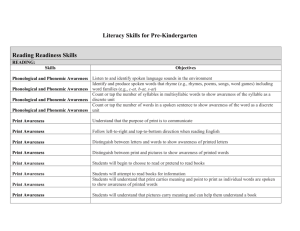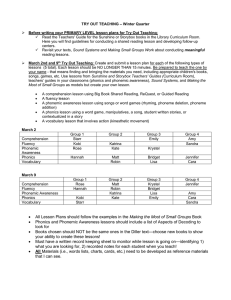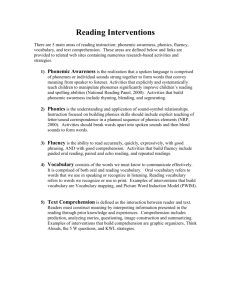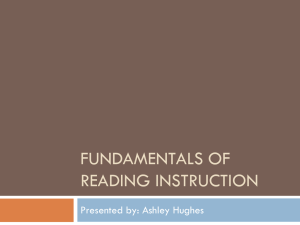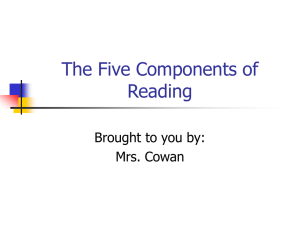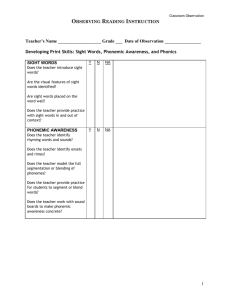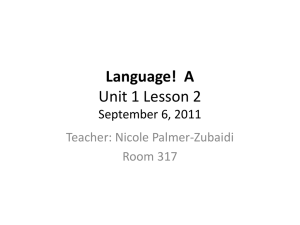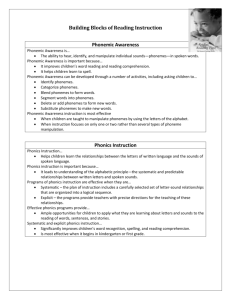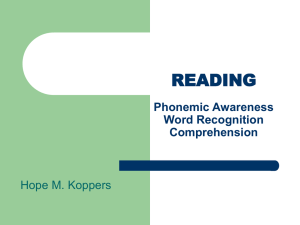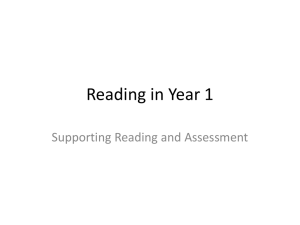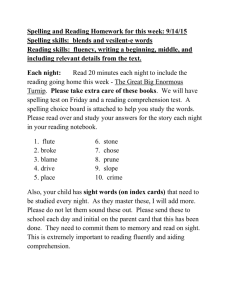5 Pillars of Reading - Erskine Elementary School
advertisement
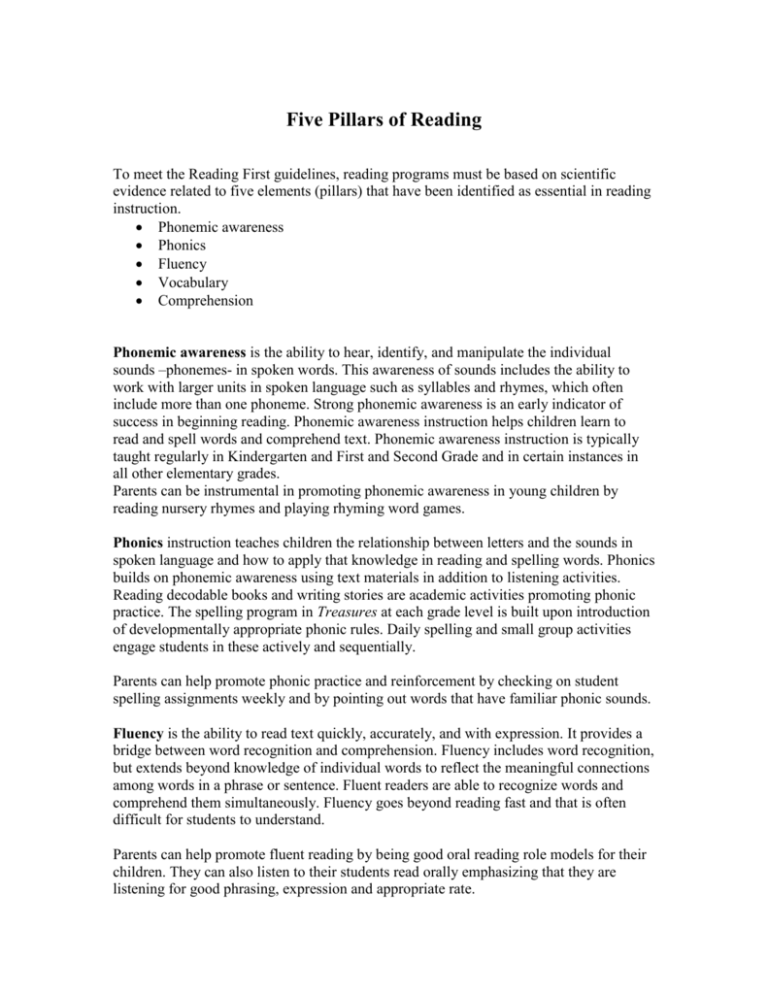
Five Pillars of Reading To meet the Reading First guidelines, reading programs must be based on scientific evidence related to five elements (pillars) that have been identified as essential in reading instruction. Phonemic awareness Phonics Fluency Vocabulary Comprehension Phonemic awareness is the ability to hear, identify, and manipulate the individual sounds –phonemes- in spoken words. This awareness of sounds includes the ability to work with larger units in spoken language such as syllables and rhymes, which often include more than one phoneme. Strong phonemic awareness is an early indicator of success in beginning reading. Phonemic awareness instruction helps children learn to read and spell words and comprehend text. Phonemic awareness instruction is typically taught regularly in Kindergarten and First and Second Grade and in certain instances in all other elementary grades. Parents can be instrumental in promoting phonemic awareness in young children by reading nursery rhymes and playing rhyming word games. Phonics instruction teaches children the relationship between letters and the sounds in spoken language and how to apply that knowledge in reading and spelling words. Phonics builds on phonemic awareness using text materials in addition to listening activities. Reading decodable books and writing stories are academic activities promoting phonic practice. The spelling program in Treasures at each grade level is built upon introduction of developmentally appropriate phonic rules. Daily spelling and small group activities engage students in these actively and sequentially. Parents can help promote phonic practice and reinforcement by checking on student spelling assignments weekly and by pointing out words that have familiar phonic sounds. Fluency is the ability to read text quickly, accurately, and with expression. It provides a bridge between word recognition and comprehension. Fluency includes word recognition, but extends beyond knowledge of individual words to reflect the meaningful connections among words in a phrase or sentence. Fluent readers are able to recognize words and comprehend them simultaneously. Fluency goes beyond reading fast and that is often difficult for students to understand. Parents can help promote fluent reading by being good oral reading role models for their children. They can also listen to their students read orally emphasizing that they are listening for good phrasing, expression and appropriate rate. Vocabulary is the knowledge of meaning, use, and pronunciation of individual words. It includes both oral vocabulary- words we use in speaking or recognize in listening and reading vocabulary- words we use or recognize in print. Vocabulary is a key component of reading comprehension. Before readers can understand the meaning of spoken or written text, they must know what most of the words mean. Parents can promote and extend increased vocabulary understanding by explain, in student friendly language, unfamiliar words as they read with their child in child. Only looking up words in the dictionary to gain meaning is not a very effective method of learning new words. Parents can talk with their children about words that mean the same (synonyms) and words that are opposite (antonyms) of the unfamiliar or sometimes very familiar words. Comprehension is often identified as the primary goal of reading. Children and adults read in order to understand. Reading without understanding is simply word calling. Research has shown us that comprehension is not a passive activity. Readers must become actively involved in a text by predicting, questioning, summarizing and inferring to truly comprehend. These comprehension monitoring strategies are all taught in all the elementary grades in the Treasurers program but explicitly in grade 2-5. Parents in K-3 can promote comprehension by talking about characters, setting and main idea of stories as they read with their children. Parents of students in grades 4-5 can pose questions as students read or can ask students to talk about any inferences they made or ask them to summarize a chapter in a sentence or two. If you would like anymore information on ways to promote the 5 Pillars with your child please contact me at Erskine School.
